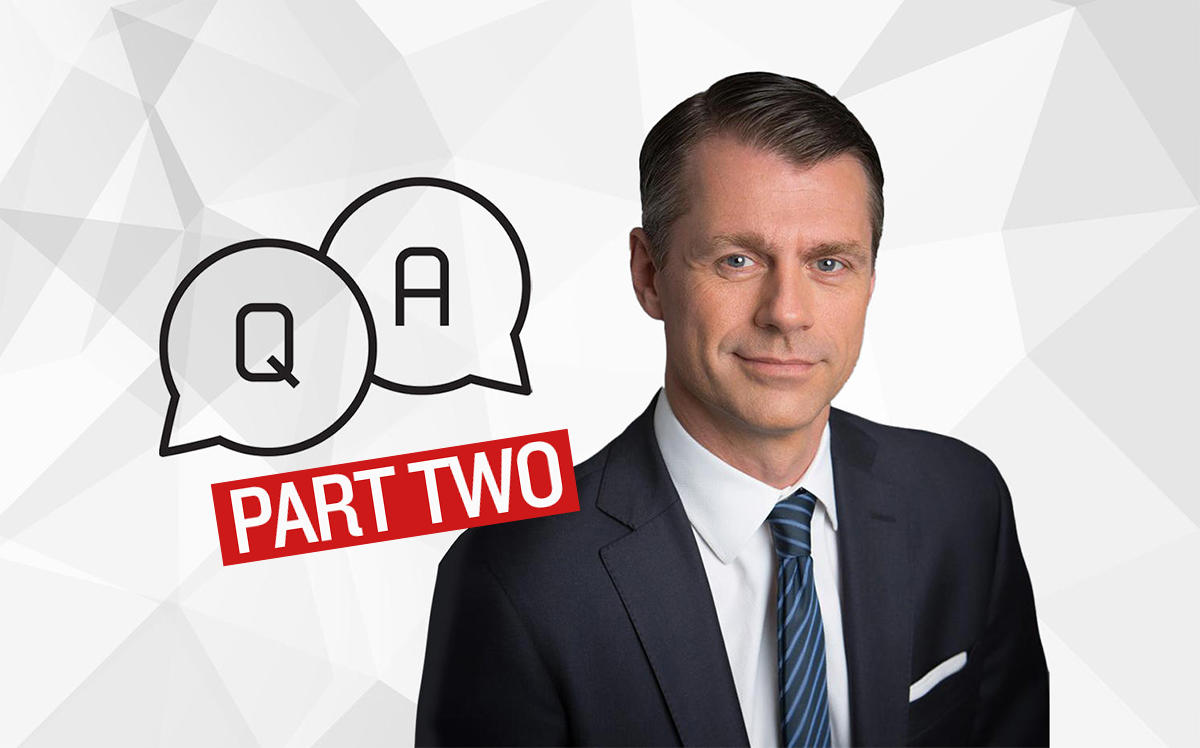Trending
Part Two: Brookfield’s Brian Kingston on Manhattan West, Lever House and working from home
Brookfield Property CEO says he “can’t wait to get back” to the office and thinks many others feel the same

Brookfield’s Brian Kingston is not a fan of working from home, and believes most others share the feeling.
In part two of his interview with The Real Deal this month, the Brookfield Property Partners CEO said he doesn’t anticipate a big drop in demand for office space, and noted that his company is moving “full steam ahead” on the final tower in its $2 billion Manhattan West megadevelopment.
Kingston also delved deeper into Brookfield’s plans for its shopping malls and how the recent wave of retail bankruptcies has impacted the company, and he talked about the company’s recent takeover of Manhattan’s iconic Lever House.
And despite the pandemic, Kingston expressed measured optimism that economic conditions could present Brookfield with some good opportunities in 2021 — provided a second wave of coronavirus doesn’t materialize and a vaccine is developed.
This interview has been edited and condensed for clarity. Read part one here.
Did any of the retail companies that recently declared bankruptcy hurt Brookfield more than others?
The act of filing bankruptcy isn’t the real issue. It’s when they close stores. Using J.C. Penney as an example, they’re going to close 200 stores over the next two years or so. We would expect some of those will be in our malls. It’s not a big rent loss when they close one of their stores down, but it impacts the flow of traffic in the remainder of the mall. In some cases, we could build apartments in the store’s place. We have a lot of those options available to us.
The act of filing bankruptcy isn’t the real issue. It’s when they close stores. Using J.C. Penney as an example, they’re going to close 200 stores over the next two years or so. We would expect some of those will be in our malls.
So the plan to convert several Brookfield malls into “mini cities” is still ago?
Yes. If anything, the pandemic may drive demand for housing, particularly for new housing that is going to be taking into account everything that we know — from HVAC systems to hallways to how to design proper common areas. There may be some cosmetic changes, but the desire for people to live in these live-work-play environments, I don’t think that changes longer term. I just think we’re going to need to make a few adjustments.
Are you already making some design changes in the malls that are reopening?
When you come to one of our malls now, all of our staff are wearing PPE. We are closely monitoring social distancing. We’re cleaning more often. We’re cleaning more intensively, particularly those high touchpoint areas. And the feedback from customers and our tenants has been really good.
Are you having any issues collecting rent from non-retail tenants, namely from Brookfield’s office or multifamily properties?
No. A lot of the other public office and multifamily companies have reported their rent collections are at normal levels, and that’s consistent with ours as well. Our office collections are exactly the same as last year, and multifamily is actually slightly higher than it was in 2019, so there are no issues there.
Brookfield is obviously an enormous global company. Are there any aspects of the business that have been doing especially well during the pandemic?
Out of the four publicly traded partnerships, our business is clearly the most impacted. Private equity might be a close second to that. Our infrastructure business operates on very long term contracts, the vast majority of which are take or pay. Same with our renewable power generation business, which is just power dams in the woods. So I would say those businesses are almost unaffected.
What would an ideal 2021 look like from Brookfield’s perspective?
The most important thing is that we get the human element of this right. I hope there’s not a second wave [of coronavirus cases] that comes later in the year, that a vaccine can be found, and that it allows people to go back to more normal lives. If that happens, I think the response from the government around monetary policy will mean a situation where we have very low interest rates, which is always good news for the values of real assets. So, if we can manage through this appropriately and get everybody back to a place where people are healthy and confident, then this could all hopefully be quite short lived, and 2021 could be a fantastic year for real estate.
Is the company looking to make any distress bets going forward?
This is in our DNA. If you look at 2008 to 2011, we were very opportunistic the last time we had a major downturn like this. We have a tremendous amount of dry powder, both on our balance sheet but also from client capital, so if opportunities present themselves, it could be a great investment environment for us in the second half of the year.
Switching gears just a little, any comment on Brookfield and Tod Waterman taking over the Lever House from Aby Rosen? Why was the company interested in that property?
We’re always interested in trophy office buildings in New York City. In this particular case, it was an investment that we made in, effectively, a sandwich ground lease, and ultimately the lease holder elected not to renew it. So we will effectively step into the leasehold. It’s a great asset and a great location. We expect we’ll have to invest a bit of capital into it, but it’s one of the most iconic buildings in New York City.
And what’s the outlook for Manhattan West? Are you reevaluating it at all assuming there will be a lower demand for commercial space than when Brookfield first started working on the project?
No, we’re full steam ahead on the final tower. We were able to have it designated as essential construction, so there was a brief setback in the middle of the pandemic for about a week, but otherwise we’re right back on track. The rest of the complex is virtually fully leased, so the task ahead is really related to Two Manhattan West, which is about 25 percent leased already and won’t be completed for three more years, so we have a lot of time to take care of that. We probably will not be where we thought we would be at the end of this year with respect to leasing. There’s never a perfect time for something like this to happen, but if you could have picked a time for it to happen, this is the right time.
It’s impossible to build a company culture by conference call.
So you aren’t worried that there will be less demand for office space after the pandemic with so many people working from home?
I always laugh when somebody asks me, “Are you worried that everybody’s just going to start working from home, and they won’t need an office anymore?” I say to them, “Well, how are you enjoying working from home?” And they say, “Oh, it’s terrible. I can’t wait to get back to the office.” I think that’s the way most people feel. There are lots of conversations around preferring to have more flexibility and being able to work from home. But the idea of working from home fulltime does not seem to have much appeal. I think we’ll see certain changes in the way that companies utilize their offices, but we don’t see this as an existential threat.
How have you liked working from home?
I hate it. I can’t wait to get back.




